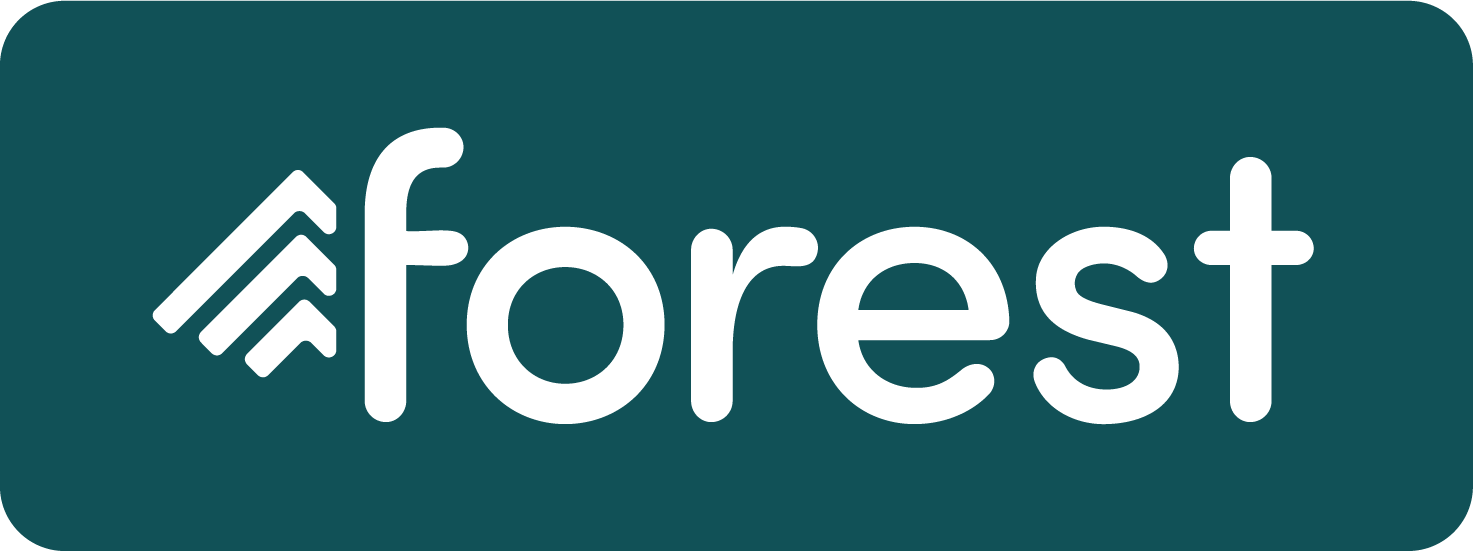The Onnela Lab at the Harvard T.H. Chan School of Public Health has developed the Forest library to analyze smartphone-based high-throughput digital phenotyping data. The main intellectual challenge in smartphone-based digital phenotyping has moved from data collection to data analysis. Our research focuses on the development of mathematical and statistical methods for analyzing intensive high-dimensional data. We are actively developing the Forest library for analyzing smartphone-based high-throughput digital phenotyping data collected with the Beiwe platform. Forest will implement our methods for analyzing Beiwe data as a Python 3.8 package and is released under the BSD-3 open-source license. The Forest library will continue to grow over the coming years as we develop new analytical methods.
Forest can be run locally but is also integrated into the Beiwe back-end on AWS, consistent with the preferred big-data computing paradigm of moving computation to the data. Integrated with Beiwe, Forest can be used to generate on-demand analytics, most importantly daily or hourly summary statistics of collected data, which are stored in a relational database on AWS. The system also implements an API for Tableau, which supports the creation of customizable workbooks and dashboards to view data summaries and troubleshoot any issues with data collection. Tableau is commercial software but is available under free viewer licenses and may be free to academic users for the first year (see Tableau for more information).
For more detailed info on specific subpackages, see our Wiki. Please note that Forest uses Python 3.8.
Description of how beiwe data looks (folder structure + on/off cycles)
Input: typically raw data from smartphones Output: typically summary files
- Creating synthetic data
- Want to try out our methods, but don't have smartphone data at hand? Use bonsai
- Data preparation
- Identifying time zones and unit conversion: use poplar
- Collate Beiwe survey data into .csvs per participant or per study: use sycamore
- Data imputation
- State-of-the-art GPS imputation: use jasmine
- Data summarizing (see tables below for summary metrics)
- Mobility metrics from GPS data: use jasmine
- Daily summaries of call & text metadata: use willow
- Survey completion time from survey metadata: use sycamore
To install, clone this repository to a local directory and then:
pip install path/to/forestAlternatively, install directly from github with pip. As the repo is public, it won't prompt you to login. If you've used forest in the past, it might be prudent to do a '''pip uninstall forest''' first.
pip install git+https://github.com/onnela-lab/forestTo immediately test out forest, adapt the filepaths in the code below and run:
# Currently, all imports from `forest` must be explicit. For the below example you need to import the following
# In future, it would be great to have all functions import automatically
import datetime
from forest.bonsai.simulate_log_data import sim_log_data
from forest.bonsai.simulate_gps_data import sim_gps_data, gps_to_csv
from forest.jasmine.traj2stats import Frequency, gps_stats_main
from forest.willow.log_stats import log_stats_main
# 1. If you don't have any smartphone data (yet) you can generate fake data
path_to_synthetic_gps_data = "ENTER/PATH1/HERE"
path_to_synthetic_log_data = "ENTER/PATH2/HERE"
path_to_gps_summary = "ENTER/PATH/TO/DESIRED/OUTPUT/FOLDER1/HERE"
path_to_log_summary = "ENTER/PATH/TO/DESIRED/OUTPUT/FOLDER2/HERE"
# Generate fake call and text logs
# Because of the explicit imports, you don't have to precede the functions with forest.subpackage.
sim_log_data(path_to_synthetic_log_data)
# Generate synthetic gps data and communication logs data as csv files
# Define parameters for generating the data
# To save smartphone battery power, we typically collect location data intermittently: e.g. during an on-cycle of 3 minutes, followed by an off-cycle of 12 minutes. We'll generate data in this way
# number of persons to generate
n_persons = 1
# location of person to generate format: Country_2_letter_ISO_code/City_Name
location = "GB/Bristol"
# start date of generated trajectories
start_date = datetime.date(2021, 10, 1)
# end date of trajectories
end_date = datetime.date(2021, 10, 5)
# api key for openroute service, generated from https://openrouteservice.org/
api_key = "mock_api_key"
# Length of off-cycle + length of on-cycle in minutes
cycle = 15
# Length off-cycle / (length off-cycle + length on-cycle)
percentage = 0.8
# dictionary of personal attributes for each user, set to None if random, check Attributes class for usage in simulate_gps_data module.
personal_attributes = {
"User 1":
{
"main_employment": "none",
"vehicle" : "car",
"travelling_status": 10,
"active_status": 7
},
"Users 2-4":
{
"main_employment": "university",
"vehicle" : "bicycle",
"travelling_status": 8,
"active_status": 8,
"active_status-16": 2
},
"User 5":
{
"main_employment": "office",
"vehicle" : "foot",
"travelling_status": 9,
"travelling_status-20": 1,
"preferred_exits": ["cafe", "bar", "cinema"]
}
}
sample_gps_data = sim_gps_data(n_persons, location, start_date, end_date, cycle, percentage, api_key, personal_attributes)
# save data in format of csv files
gps_to_csv(sample_gps_data, path_to_synthetic_gps_data, start_date, end_date)
# 2. Specify parameters for imputation
# See https://github.com/onnela-lab/forest/wiki/Jasmine-documentation#input for details
# time zone where the study took place (assumes that all participants were always in this time zone)
tz_str = "Etc/GMT-1"
# Generate summary metrics Frequency.HOURLY, Frequency.DAILY or Frequency.BOTH
frequency = Frequency.DAILY
# Save imputed trajectories?
save_traj = False
# Hyperparameters class for imputation (default leave None), from forest.jasmine.traj2stats import Hyperparameters
parameters = None
# list of locations to track if visited, leave None if don't want these summary statistics
places_of_interest = ['cafe', 'bar', 'hospital']
# True if want to save a log of all locations and attributes of those locations visited
save_log = True
# threshold of time spent in a location to count as being in that location, in minutes
threshold = 15
# 3. Impute location data and generate mobility summary metrics using the simulated data above
gps_stats_main(path_to_synthetic_gps_data, path_to_gps_summary, tz_str, frequency, save_traj, parameters, places_of_interest, save_log, threshold)
# 4. Generate daily summary metrics for call/text logs
option = "daily"
time_start = None
time_end = None
participant_ids = None
log_stats_main(path_to_synthetic_log_data, path_to_log_summary, tz_str, option, time_start, time_end, participant_ids)Beiwe platform for smartphone data collection Onnela lab
Forest 1.0
